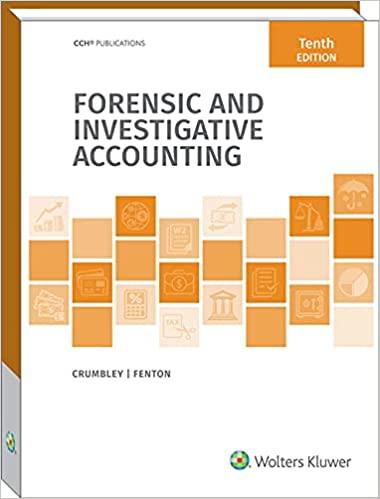Question
1. Chambers' theory of accounting. Continuously Conternporary Accounting relies on the notion of the 'capacity to adapt'. What is the capacity to adapt and how
1. Chambers' theory of accounting. Continuously Conternporary Accounting relies on the notion of the 'capacity to adapt'. What is the capacity to adapt and how is it determined?
2. If we accept the assumptions of Positive Accounting Theory, would you expect a manager who is rewarded by way of a profit-sharing bonus scheme to prepare the firm's financial statements in an unbiased manner? Explain your answer.
3. Using Institutional Theory as your theoretical basis, explain why an organization might voluntarily elect to make particular financial disclosures.
4. Within Institutional Theory, reference is made to isornorphism and decoupling. What do these terms mean?
5. The FIA'S frame for the Preparation and Presentation of Financial Statements indicates that financial statements should be unbiased representations of the underlying transactions. Is this realistic?
6. Provide some arguments to explain what motivates regulators to introduce particular regulations.
Step by Step Solution
There are 3 Steps involved in it
Step: 1

Get Instant Access to Expert-Tailored Solutions
See step-by-step solutions with expert insights and AI powered tools for academic success
Step: 2

Step: 3

Ace Your Homework with AI
Get the answers you need in no time with our AI-driven, step-by-step assistance
Get Started


